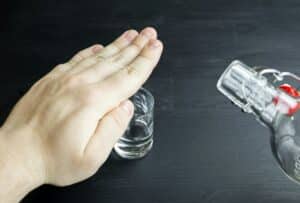Prescription drug addiction poses serious risks, including long-term health issues, overdose, and even fatal outcomes. Suspecting that someone you care about may be struggling can be a deeply emotional experience, filled with worry, frustration, and uncertainty about how to help. These feelings can make it harder to act, but recognizing the warning signs early can make a big difference in protecting their health and guiding them toward help.
This post will walk you through the key signs of prescription drug addiction, how substance use impacts a person’s health, mood, and behavior, and the steps you can take to offer support. With this insight, you’ll feel better equipped to navigate this difficult situation and take meaningful action.
Commonly Abused Prescription Drugs
A few prescription drugs are more frequently misused due to their addictive properties. These include:
- Opioids – Powerful painkillers such as oxycodone and hydrocodone are known to be highly addictive and often misused.
- Benzodiazepines – Medications like Xanax and Valium, used for treating anxiety and sleep disorders, can lead to addiction when not used as prescribed.
- Stimulants – Drugs such as Adderall and Ritalin, prescribed for attention deficit hyperactivity disorder (ADHD), may be misused for their stimulating effects.
Signs of Prescription Drug Addiction
Physical Indicators
Addiction often has noticeable effects on the body, which may signal that a person is becoming physically dependent on a prescription drug. Over time, their body may require larger doses to achieve the same effects, while withdrawal symptoms can appear when they try to stop or cut back. These physical changes can also lead to a lack of energy, sleep disturbances, and neglected hygiene.
Here are some physical signs that may point to addiction:
- Taking higher doses: Because the usual amount doesn’t work anymore.
- Experiencing painkiller withdrawal: Like sweating, shaking, or nausea when reducing or stopping use.
- Neglecting personal hygiene: Often appearing disheveled.
- Difficulty sleeping or sleeping excessively: Significant changes in sleep patterns.
- Frequent headaches or dizziness: Along with other unexplained physical issues.
Emotional Indicators
Prescription drug addiction also impacts a person’s emotions, often making it harder to regulate feelings or cope with everyday challenges. Someone may become more irritable or prone to mood swings, and feelings of sadness or anxiety may grow stronger over time. Emotional reliance on the drug can lead to a sense of hopelessness or disinterest in previously enjoyed activities, further isolating the person.
Below are some common emotional changes:
- Experiencing mood swings: Becoming easily irritated or unpredictable.
- Struggling with depression or anxiety: Facing sudden or overwhelming emotional changes.
- Feeling emotionally numb: Or being overly sensitive to situations.
- Losing interest in activities: No longer enjoying hobbies or past interests.
- Depending on the drug: To manage stress or cope with emotional challenges.
Behavioral Indicators
Changes in behavior are often the most noticeable signs of prescription drug addiction, especially for those closest to the person. They may start taking risks or breaking rules to get more of the drug, such as visiting multiple doctors or buying from illegal sources. Over time, they might neglect responsibilities, withdraw from loved ones, or continue using the drug despite clear consequences.
Here are some behavioral patterns to watch out for:
- Visiting multiple doctors: To obtain extra prescriptions or refill medications early.
- Taking risks or breaking the law: Such as buying drugs illegally or forging prescriptions.
- Ignoring responsibilities: At work, school, or home due to drug use.
- Pulling away from loved ones: Avoiding friends, family, or social interactions.
- Continuing to use the drug: Even when it leads to serious problems or consequences.
How to Tell If Someone Is on Pills
Physical Signs
Prescription pills often cause noticeable physical changes, depending on the type of drug. These signs may appear suddenly and can vary in intensity.
- Dilated or constricted pupils: Opioids may cause pinpoint pupils, while stimulants can make pupils appear larger than usual.
- Slurred or slowed speech: Speaking unusually slowly or struggling to form sentences can be a sign of sedatives.
- Uncoordinated movements: Difficulty walking, frequent stumbling, or appearing overly clumsy could indicate impairment.
- Drowsiness or hyperactivity: Sedatives may make someone appear excessively sleepy, while stimulants can cause restlessness or jitteriness.
- Flushed skin or sweating: Changes in complexion or excessive sweating can occur, especially with certain medications.
Behavioral Signs
Someone on pills may act differently than they typically do, with changes in their mood, energy, or responsiveness.
- Unusual mood swings: They might alternate between euphoria, irritability, or sadness with no clear reason.
- Avoiding eye contact: They may seem distracted, avoid looking directly at you, or appear overly focused on something else.
- Overly talkative or unusually quiet: Stimulants may make them talk excessively, while sedatives can make them withdrawn.
- Impaired judgment: They may make inappropriate comments or decisions that seem uncharacteristic.
- Seeming overly calm or detached: Opioids, in particular, can make someone appear indifferent or “zoned out.”
Communication Clues
The way someone talks or interacts while high on pills may offer more subtle signs. Pay attention to their tone, focus, and overall demeanor.
- Inconsistent or rambling stories: Their explanations or comments may not make sense or may shift topics erratically.
- Delayed responses: They might take longer than usual to answer questions or respond to statements.
- Unusual confidence or paranoia: Stimulants can lead to inflated self-esteem, while certain drugs might make them overly suspicious.
What to Do If You Suspect Your Loved One Is Addicted to Prescription Pills
Suspecting that someone you care about might be struggling with prescription pill addiction can feel overwhelming, but your support can make a significant difference. The key is to approach the situation with understanding, patience, and a plan to encourage them to seek help.
Learn About Prescription Pill Addiction
Start by educating yourself about prescription pill addiction. Understanding the signs, symptoms, and potential risks — including prescription drug overdose — can help you approach the situation more effectively. When you’re informed, you’ll be better prepared to have a productive conversation and offer meaningful support.
Observe and Document Behavior
Before bringing up your concerns, take time to observe their behavior and note specific patterns. Look for signs like mood swings, physical changes, or neglecting responsibilities. Having concrete examples can help you discuss your concerns in a way that feels less judgmental and more constructive.
Talk to Them Calmly and Supportively
Choose a quiet time to have an honest conversation. Express your concerns with empathy, using “I” statements like, “I’ve noticed you’ve been struggling lately, and I’m worried about you.” Avoid accusations or blame, as this can cause defensiveness. Let them know you’re there to support them and want to help.
Encourage Professional Help
Suggest they reach out to a doctor, counselor, or addiction treatment center. Explain that addiction is treatable and that professional help can make a difference. Offer to help them find resources, set up appointments, or even go with them if they’re feeling nervous. Family therapy might be a good first step if they seem disinterested in seeking help individually.
Set Boundaries if Necessary
While supporting your loved one is important, it’s also crucial to protect your own well-being. If their addiction begins to negatively impact your mental or physical health, set clear boundaries about what behavior is unacceptable and stick to them. This can include limiting contact if their actions become harmful or refusing to enable their addiction.
Consider a Support Group for Yourself
Dealing with a loved one’s addiction can be emotionally draining. Consider joining a support group like Al-Anon or Nar-Anon, where you can connect with others who understand what you’re going through and get advice on how to cope.
Find Help For Prescription Drug Addiction
Remember, recovery is a journey that requires patience and persistence. While you can’t force someone to seek help, your encouragement and understanding can guide them toward the support they need.
At Northpoint Nebraska, we provide life-saving inpatient prescription drug addiction treatment. We use evidence-based therapies to help clients recover from addiction at a pace that works for them. Our team helps clients understand their addictions and triggers, teaching them how to unlearn unhealthy habits and change their behavior over time.
Contact us today to learn more about our programs today.




